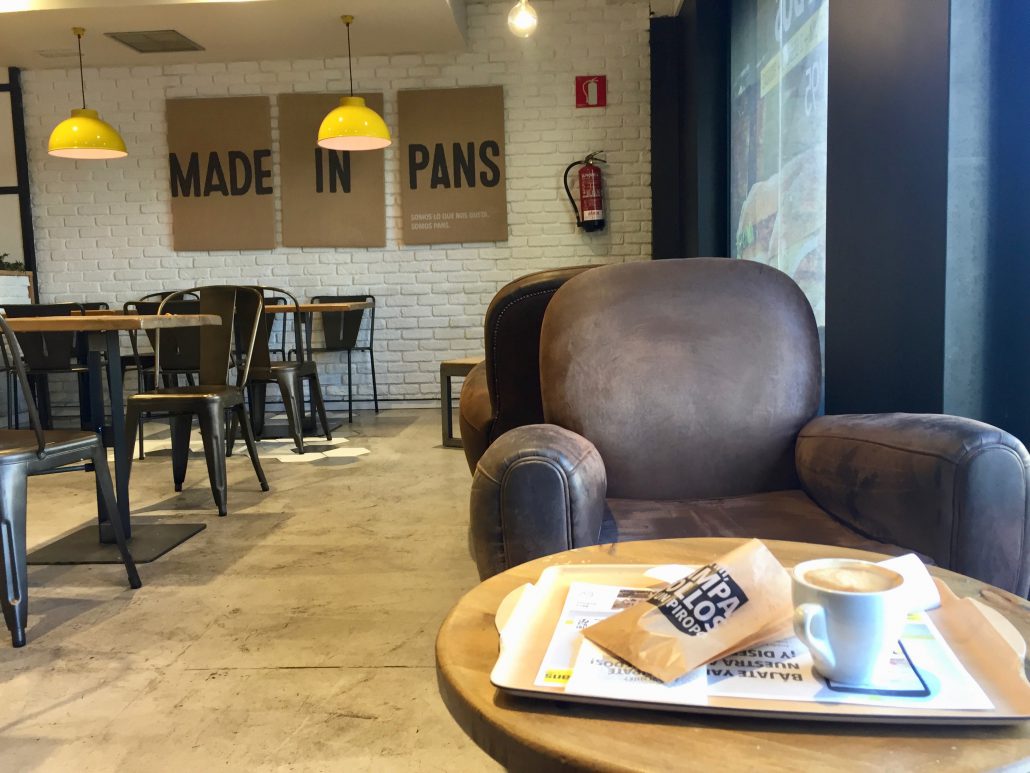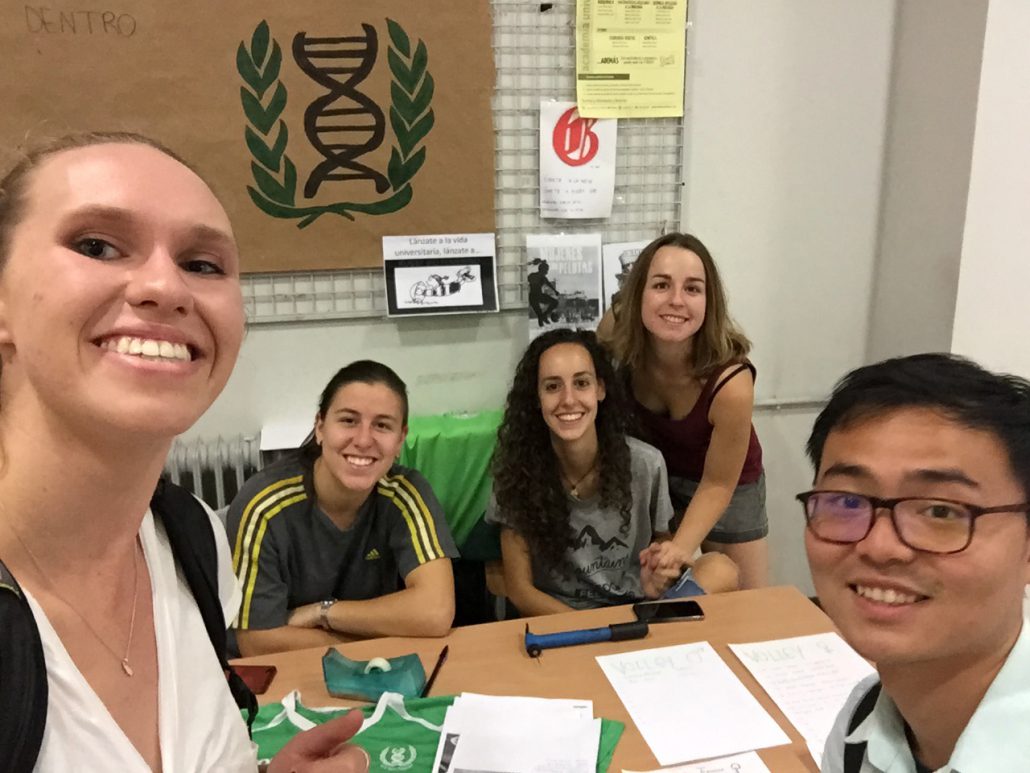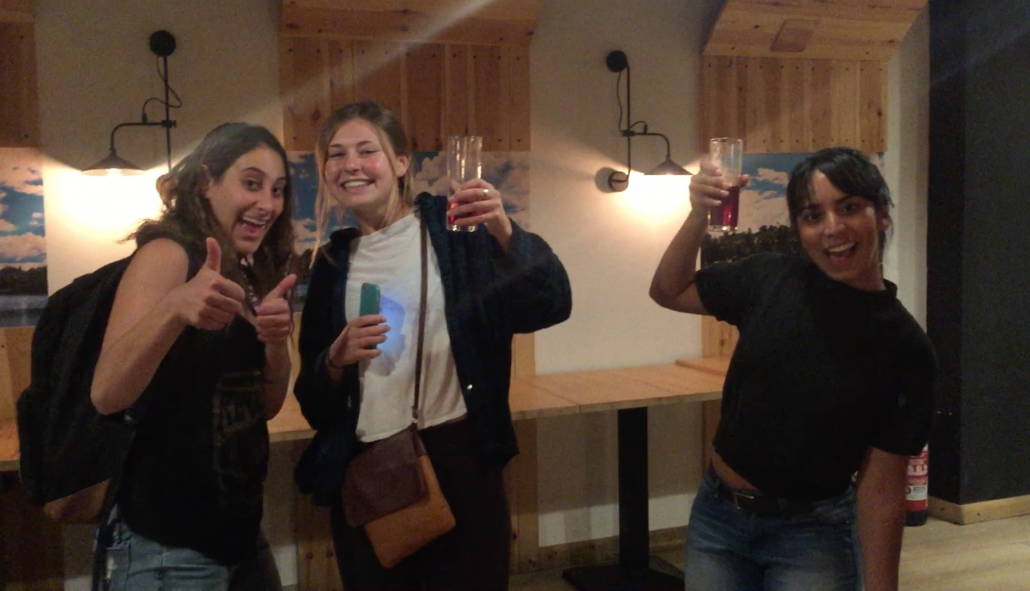BY NINA CHIKANOV
One of my main reasons for studying abroad in a Spanish-speaking country was to improve my Spanish language proficiency.
After taking four years of classes in high school, I was highly considering adding a Spanish minor to my degree in college. I wasn’t committed to it, so I didn’t declare the minor right away; unfortunately, with a Computer Science & Engineering curriculum (typically 4 STEM-based classes a quarter), I didn’t think it would be feasible to commit to any other course-load. This doesn’t mean it’s impossible to do, but for me, I didn’t think the extra stress was worth it.
So…to make up for the fact that I wouldn’t be taking any language classes at UCLA, I started thinking about going abroad. The Contemporary Spain program in Madrid was perfect for me in this regard, as I could take my core GE classes in English and place into either beginner or intermediate Spanish classes. On top of that, I had the option of staying with a host family (read about my homestay experience here), which gave me more opportunities to fully immerse myself in Spanish language and culture.

One of my first cafés in Madrid
When I first arrived, I was definitely rusty. The last structured Spanish class I had taken was AP Spanish in my last year of high school (2 years ago at this point – crazy!) I could basically only speak in present and limited past tenses and forgot a lot of other grammatical details about the language. It was enough to get by and order a café con leche (very important), but my mistakes were constant and sometimes prevented others from understanding exactly what I meant. Moreover, I had to think extremely carefully before speaking.
In terms of listening, I think I could better understand what was being said to me than I could successfully relay information to another person. While I didn’t fully grasp everything, if people were speaking at a slightly slower pace than normal, I could pick up on what they meant to say.
Intermediate Spanish classes helped refresh and build on the grammatical structures I had lost. I was reminded of when to use imperfect instead of indefinite, brushed up on some vocab, learned the tough concepts (subjunctive…yikes) and more. It gave me regular listening, speaking, and writing practice and was definitely necessary to kick me back into functioning Spanish mode.

My friend Hank and I speaking with some girls on the club soccer team at Universidad Complutense Madrid. This was a part of Spanish-class field trip to learn more about university life in Spain!
My host family mostly helped for in-person real-time situations. If I was struggling to ask a question or phrased something completely wrong, they would correct the phrase or provide the appropriate words. This way, I was able to practice my Spanish outside of a classroom setting where the context was more unexpected.
Outside of those two sources, I mostly practiced my Spanish in stores or at language exchanges. I also met native Spanish speakers through activities like soccer, Jewish functions (read), during nights out, or even randomly during the day at parks and other social locations.

Leila, Sophie, and Shivani at a language exchange in Chamberí
Essentially, I tried to speak as much as I could every day. I found Madrid to be the perfect city for improving my speaking fluidity since people will (for the most part) continue speaking with you in Spanish even if they know English well (unless you’re completely lost).
While not everyone would correct me as openly as my host family, it was still helpful to see the reactions and read the body language of people in real-time conversations.
…
Living in a country where Spanish is the official language is definitely the way to acquire proficiency. It still took a lot of work on my part to improve, and I even know some people who managed to get by in Madrid with very limited Spanish. But I’m glad that living abroad for four months made me more comfortable with Spanish and helped me get over my initial hesitancy to speak a foreign language. To become fully fluent, however, (starting at the level I did, with 4 years of background in high school) would probably take me about a full year of living abroad, if not more.
For now, I really hope I don’t lose the progress I’ve made. I plan on reading news in Spanish and watching Spanish TV shows when I can (definitely in Spanish with Spanish subtitles), as well as practicing more frequently with my Spanish-speaking friends.
Abroad definitely gave me more motivation to keep up with a language and showed me the practicality of being bi/tri-lingual, even if learning a new language sometimes resulted in losing some vocab in old ones.
Hasta pronto,
Nina
Nina Chikanov studied abroad in Madrid, Spain in fall 2017: http://eap.ucop.edu/OurPrograms/spain/Pages/contemporary_spain_madrid.aspx



